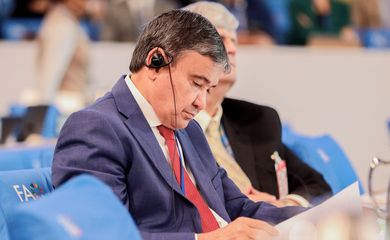G20 Social Summit urges immediate action to combat poverty and hunger

The document crafted by civil society organizations during the G20 Social Summit, to be presented to the leaders of the world’s largest economies at the upcoming G20 summit in Rio de Janeiro, urges immediate and top-priority action to combat hunger and poverty. It also calls for urgent climate action, emphasizing respect for science and the knowledge of indigenous communities. The document stresses the urgent need to reform global governance institutions to better reflect contemporary geopolitics.

Approved and released on Saturday (Nov. 16), the document was finalized during the G20 Social Summit, an event organized by Brazil's G20 presidency, through three key thematic plenary sessions: Fighting Hunger and Inequality, Climate Change and Just Transition, and Reforming Global Governance.
Read the full final version:
FINAL DECLARATION
The G20 Social Summit, held in Rio de Janeiro from November 14 to 16, at the end of the broad process of participation of the G20 Social, convened by Brazil's G20 Presidency, addresses world leaders, who will meet on November 18 and 19 at the G20 Summit, presenting the key proposals from global civil society. These proposals were agreed upon throughout the year, focusing on the three central themes of Brazil's G20 Presidency:
- Fighting Hunger, Poverty, and Inequality;
- Addressing Sustainability, Climate Change, and Just Transition;
- Reforming Global Governance.
WHO WE ARE AND WHERE WE SPEAK FROM
We represent social movements and civil society organizations from Brazil and around the world, brought together after intense participatory processes aimed at giving a voice to the diverse segments of global society that are often impacted but rarely heard in major geopolitical and macroeconomic decisions made by a select group of leaders.
During these months of work, we aimed to incorporate the demands, claims, and proposals historically developed by organizations and movements representing women, black men and women, indigenous and native peoples, traditional communities, people with disabilities, LGBTQIA+ individuals, youth, children, adolescents, the elderly, displaced or homeless populations, migrants, refugees, stateless people, and workers in both rural and urban settings, across the formal, informal, solidarity, and care economies. All are calling for a reform of global governance to ensure the end of armed conflicts and the realization of development and socio-environmental justice for themselves and for the entire planet.
FIGHTING HUNGER, POVERTY, AND INEQUALITY
It is imperative, as a matter of urgency and top priority, that all G20 countries and other states join the Global Alliance against Hunger and Poverty initiative. In alignment with the United Nations' 2030 Agenda for Sustainable Development, this alliance should foster cooperation among countries and international organizations, establishing a specific fund to finance public policies and programs aimed at combating hunger and ensuring universal access to adequate food.
We advocate for food sovereignty as a cornerstone in eradicating hunger, ensuring the right to access land and water, and controlling food production and distribution, with an emphasis on agroecological practices and environmental preservation.
We reaffirm the centrality of decent work, in accordance with ILO standards, as essential to overcoming poverty and inequality. It is crucial to combat slave labor, child labor, and human trafficking, while promoting the formalization of the labor market, inclusive economies such as the popular and solidarity economy, and the recognition of the care economy.
SUSTAINABILITY, CLIMATE CHANGE, AND JUST TRANSITION
The populations most affected by hunger and poverty are also the most vulnerable to climate emergencies and natural disasters, which are intensified by global warming.
We reiterate the urgency of tackling climate change while respecting both scientific knowledge and traditional wisdom. It is imperative that world leaders commit to reducing greenhouse gas emissions and deforestation, as well as protecting the oceans—essential conditions for limiting global warming to 1.5°C.
The just transition must guide the shift from a fossil fuel-based model to a low-carbon economy, addressing social exclusion and energy poverty while ensuring a level playing field for all.
We propose the creation of the Tropical Forest Forever Fund (TFFF), an international financing mechanism aimed at protecting tropical forests, promoting the socio-productive inclusion of local populations, and addressing the climate crisis.
REFORMING GLOBAL GOVERNANCE
It is essential to reform international institutions to reflect contemporary geopolitical realities, promoting multilateralism and increasing the participation of governments and peoples from the Global South in decision-making forums.
We advocate for promoting democracy and civil society participation, combating disinformation, authoritarian discourse, and human rights violations. Global governance must be inclusive, transparent, and ensure the legitimacy and effectiveness of decisions.
Tax justice is fundamental to achieving sustainable development. We call for the progressive taxation of the super-rich, with proceeds directed to national and international funds for social, environmental, and cultural policies.
CONCLUSION
G20 leaders, it is time to take responsibility for leading a profound and lasting transformation. Ambitious commitments are essential to combating hunger, mitigating climate change, and strengthening international institutions.
With determination and solidarity, we can create a collective agenda that honors our commitment to social justice and global peace.
Rio de Janeiro, Brazil, November 16, 2024.




